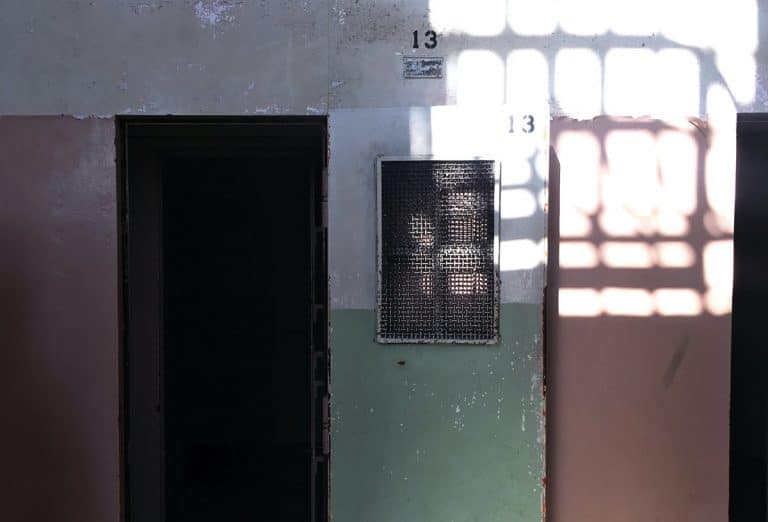New study finds Canada guilty of torturing inmates with solitary confinement

A new study conducted by criminologists Anthony Doob and Jane Sprott on Correctional Services Canada’s (CSC) use of structured intervention units (SIUs) shows that nearly one in ten federal inmates who are placed in the SIUs designed by the Trudeau government to replace solitary confinement cells are actually being tortured.
The recent research confirms what inmates and prisoner advocates have been saying for years: Canada isn’t following its own laws, various court rulings, or international standards around the treatment of inmates. It is even violating a United Nations (UN) convention on torture that it helped write.
Looking at how often inmates were placed in these cells, how long they spent there, and whether they received any meaningful human contact during their stay, the study that found nearly 10 per cent of inmates placed in these structured intervention units—about 200 prisoners—were locked in their cells for more than 22 hours a day, for longer than 16 days at a time.
Initially, SIUs were intended to replace the use of solitary confinement in federal prisons but have instead proved to be a catastrophic failure, especially for imprisoned people with mental illness. Advocates, including legal scholar Lisa Kerr and Senator Kim Pate, have criticised the introduction of SIUs as a mere rebranding of longstanding and harmful isolation practices in federal prisons.
🚨 Professors Anthony Doob and Jane Sprott have released a new report on the use of solitary confinement in Canada's prisons. Despite the Trudeau government's blithe insistence that the unconstitutional practise of solitary confinement has ended, it hasn't.
— Justin Ling (Has Left) (@Justin_Ling) February 24, 2021
According to the UN’s Standard Minimum Rules for the Treatment of Prisoners—also known as the Mandela rules, which Canada ironically helped write—prolonged solitary confinement for 22 hours a day or more should be prohibited, and constitutes torture.
“It would appear to us that, using the commonly accepted UN definitions of solitary confinement and torture, Canada has serious problems with each,” Doob and Sprott wrote. As if this new evidence wasn’t shocking enough, according to Vice, “It’s the third such report Doob has published in recent months, yet the government continues to insist that everything inside Canada’s federal prisons is constitutional and humane.”
Although Doob was originally asked to study the SIUs as part of a task force set up by the Trudeau government early in 2019, his work was quickly shut down by Correctional Services Canada. Since then, Doob’s task force has not been restarted, despite promises to do so from the Trudeau government. Both Doob and Sprott are doing their work for free.
When did Canada use solitary confinement?
For decades, Canada used solitary confinement to segregate inmates for a number of different reasons—because they posed a threat to other inmates or themselves, there wasn’t enough room in the prison, they were at risk from other inmates, or just because they talked back to corrections officers. A series of successful constitutional challenges forced the Trudeau government to write new laws ending solitary confinement for good… or so they said.
The new law in question, which came into effect in late 2019, required that inmates receive at least four hours out of their cell per day, with two hours of meaningful human contact. Anything less, the courts said, would impose physical and mental harm that could be irreversible. The bill also purported to curtail the number of days—or weeks, or months, or in some cases, years—an inmate can be placed in these tiny, windowless cells.
Yet, Doob’s study found that 25 per cent of inmates placed in these new SIUs were not getting their requisite four hours out of their cell and were kept in these cells for more than two weeks. Meanwhile, the Trudeau government has spent the past two years insisting everything is fine.
Correctional Services Commissioner Anne Kelly told Vice earlier this year “we do not have solitary confinement any longer.” Public Safety Minister Bill Blair said “the measures that were put in place were not intended in any way to violate anybody’s rights.”
But even before the legislation was passed, critics warned that the new system wouldn’t be good enough. The Liberal Party actually axed many amendments that would have added additional safeguards to prevent this torture from happening, critics said.
And to those who blamed the COVID-19 pandemic on this ‘temporary rights infringement’, Doob’s previous reporting actually found that while COVID-19 had an impact on prison operations, the data shows these problems existed even before the pandemic, and were present even in institutions without any COVID-19 cases.
“The things that we are seeing, and the lack of accountability that appears to exist, does not look to us to be very different from what experts on this topic have been describing for at least 50 years,” wrote Doobs and Sprott.





